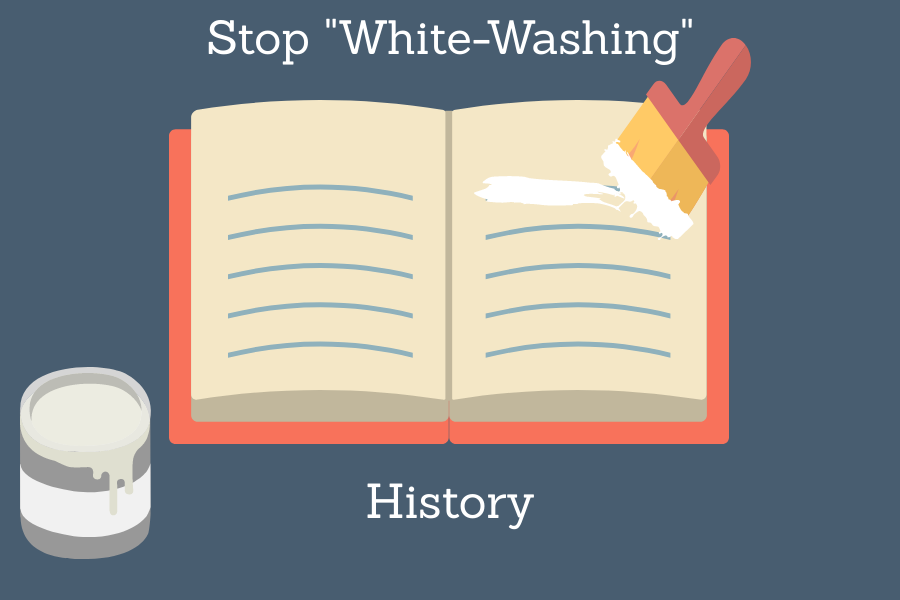MCPS needs to represent minority experiences in its curricula
MCPS must reform its curricula in order to include social justice issues and embolden minority communities.
December 6, 2020
My elementary and middle school history classes taught me that the colonists interacted peacefully with natives, that Martin Luther King Jr. ended racism and that we can attribute our country’s burst into the “first world” to the white man. It was only through TV shows and social media, not school, that I learned about the LGBTQ+ community, systemic racism, sexism and other issues that impact me and my peers today.
Currently, MCPS does not require any curricula on social issues, with the exception of a brief — and frankly, outdated — sexuality and gender unit in our health curriculum. Without a proper education on these relevant issues, students become responsible for teaching themselves and the outlets they turn to for answers are troubling. Their sources are often biased parental opinions or distorted information from social media; or in some situations, students may never take the initiative to learn about these issues at all. MCPS should expand its curriculums to educate students on social issues and their impact on mental health, school culture and unconscious biases.
Currently, we learn to prescribe racism to individual’s beliefs rather than systems that are inherently racist. This is inaccurate — racism’s roots reach deeper than the individual, stemming from the organizational structures that govern our society. Even if we do not feel that we are overtly prejudiced, it’s important that teachers and students develop an understanding of how everyone may contribute to systemic racism.
A lack of diverse perspectives in literature, primary sources and analysis is also an ongoing issue in the classroom. Education needs to facilitate critical thinking and questioning, rather than compliance. Students must learn to evaluate subject matter from multiple perspectives to achieve a holistic understanding, and currently, most students are only exposed to the white voice.
In a time of extreme global polarization, hatred and bigotry often result from a lack of exposure to people from different backgrounds. Understanding each other’s histories and struggles would not only improve the quality of our education, but benefit our surrounding community as well.
“Ignorance is hurtful to others, whether it’s physically or mentally,” senior Lily Muchimba said. “Our curriculum and school curricula in general are completely whitewashed.”
The version of history we learn in the classroom is often incomplete, and underrepresents countless marginalized groups. Textbooks often dedicate entire chapters to the more “worthwhile” players of world history, while others are only provided a paragraph; this version is one-dimensional and unfair. When we learn each other’s full story, or at least a more telling of the facts, we can better appreciate our unique heritages and develop empathy.
For history curricula, this involves educating students about colonization, slavery and discrimination beyond the white, male-dominated perspective.
AP U.S. History teacher Gregory Herbert makes sure to teach Jim Crow laws and blackface, topics otherwise not present in the course’s curriculum. Though Herbert often feels uneasy teaching this material, he recognizes its importance. He believes it is unfair to propagate and misinform young people to believe that history is only valuable or accurate from one perspective, he said.
“We need to be exposed to that uncomfortable feeling,” Herbert said. “If not, how will we learn?”
Misrepresentation not only impacts students of color, but members of the LGBTQ+ community.
In order to graduate, students must fulfill a health class requirement, which touches upon both mental health and the LGBTQ+ community. However, teachers often bring up that members of the LGBTQ+ community have much higher rates of depression and suicide, without providing an explanation or further context. This incorrectly makes it seem like being queer causes depression and suicide, which is not the case.
The misrepresentation of this community is far too common and instills misinformation and stereotyping among students.
In biology courses, there needs to be conversations about biological sex compared to gender, as students should learn the two are not synonymous.
“It should never be the responsibility of the LGBTQ+ student in the room to educate their peers and their teacher,” junior Leo Levine said. “I’ve been that student.”
Given the detrimentental affects surrounding discrimination and mental health stigmatization, staff and students need to be active participants in potential curriculum reallignment. Educators are responsible for facilitating a competent learning environment; this is vital when discussing sensitive subjects.
Some argue that problems of society are too political or not relevant to classroom curriculums, but societal issues directly impact our sense of identity, mental health and learning experience. These subjects are not a matter of politics, but of humanity and empathy.
Studies of marginalized groups that have had significant impacts on the development of our country shouldn’t be optional. Having students engage in a productive civil discourse with others who have unique perspectives and experiences would teach us to forge connections and acceptance with students from different backgrounds. Discussion and education may not always result in agreement, but it will encourage personal growth. We can engage in dialogues, open up current conversations and — with enough compassion — perhaps even learn a thing or two about one another.








